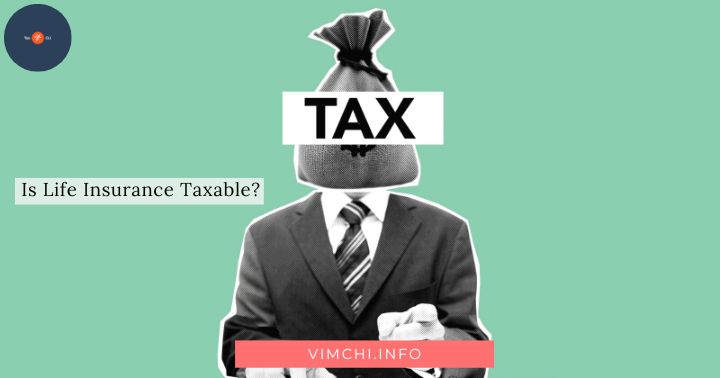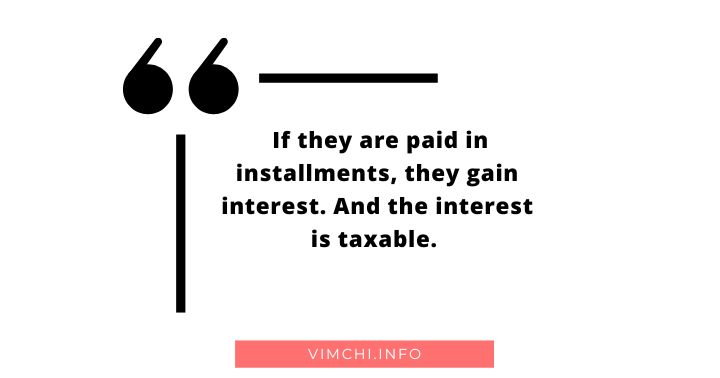
How much do you love your spouse? Your kids? You won’t know what will happen to them after you pass on.
They may do well without you if you left them with a significant amount of savings. But if you’re the breadwinner, your savings may still not be enough for them to survive without you.
Enter life insurance. It is something that you think you don’t need today. But if you want to ensure that your family is financially secure in the future, then getting a life insurance policy can help out.
It does not only cover your financial expenses but it also provides your family the needed financial safety net to replace your income. It may also serve as an inheritance for your spouse or a loved one.
There are various benefits of having life insurance. But are the proceeds taxable? Is a life insurance policy taxable? Keep reading to know more.
Read: Life insurance for your employees
Life Insurance Policy: Taxable or Not
The death benefits of this policy are generally free from tax. You may choose to have the insurer hold on to the proceeds after your diet and distribute the proceeds to your beneficiary at a later date.
The death benefits can also be spread in a series of installments.
The funds that the insurance company holds will earn interest. Thus, when your beneficiaries will receive a payment, the amount will include principal and interest earned.
However, the principal portion of the funds is tax-free. But the interest is taxable. It is treated as an ordinary income.
Furthermore, if you transfer your policy before your death, the monetary value could be taxable income to the beneficiary.
The taxable part of life insurance is a complicated matter. That’s why it is pertinent that you get help from a tax professional before you even complete the transfer of ownership of your life insurance policy.
Federal Estate Taxes
Another thing to consider is that the funds of the insurance policy may be subject to federal estate taxes. This is especially true if you have incidents of ownership in your policy.
You can postpone the estate taxes if the benefits will go to your spouse. However, the taxes will still come later when your spouse dies.
The rules are a bit complicated. Thus, make sure to consult with a qualified professional when you plan your estate.
Pay Taxes When:
The Payout is In Installments

You can choose for your beneficiaries to receive the fund as a single lump sum or in installments.
One reason policyholders want their beneficiaries to receive the fund in installments is that they don’t want them to spend the full amount.
However, if they are paid in installments, they gain interest. And the interest is taxable.
As mentioned, the death benefit is not taxable. It is only the interest that can be taxed.
Read: Life Insurance for Business
Cash Value Policy
A life insurance policy that has a cash value will not be taxable. However, it still affects your loved ones. You can borrow against the funds.
If you did borrow against the policy and you don’t pay it back, the insurer will deduct the amount you owed before they send payment to your beneficiaries.
A cash value policy will have distributions to be deducted from taxable gains. If the policy is a modified endowment contract (MEC), withdrawals are taxable from the policy’s cash value.
In that case, your life insurance policy may or may not be taxable. To know whether or not it is taxable, make sure to consult with a financial strategist.
Now that you know whether or not the policy is taxable, the next thing you want to know is how your death benefit will be used.
Pay Off Debt
Your loved ones can use the funds to pay off high-interest debt. Doing so allows your loved one to prioritize debts based on their interest rates. It is also a good idea to pay off higher interest rates.
Kid’s Education
You may create a college fund for your kids that you can put into the college savings plan. The funds can be withdrawn tax-free. They can be used to pay for qualified school expenses.
When paying for your kid’s education, make sure to use tax credits first. Once they are fully consumed, use the college savings fund on the remaining expenses.
Build an Emergency Fund
Most of us live from paycheck to paycheck. To take some of the pressure off, you must consider creating an emergency fund.
This fund must have between three and six months’ worth of living expenses. In that way, you have money to pay for your car if it breaks down. And if you become ill or unable to work, you can use the amount for your expenses.
Knowing Whether Life Insurance Policy is Taxable
To make sure that your life insurance policy is taxable or not, you should consult with a financial expert. In this way, you will know how to use the death benefit or the funding to make the most of the money.
Speak Now ... Or Forever Hold Your Peace